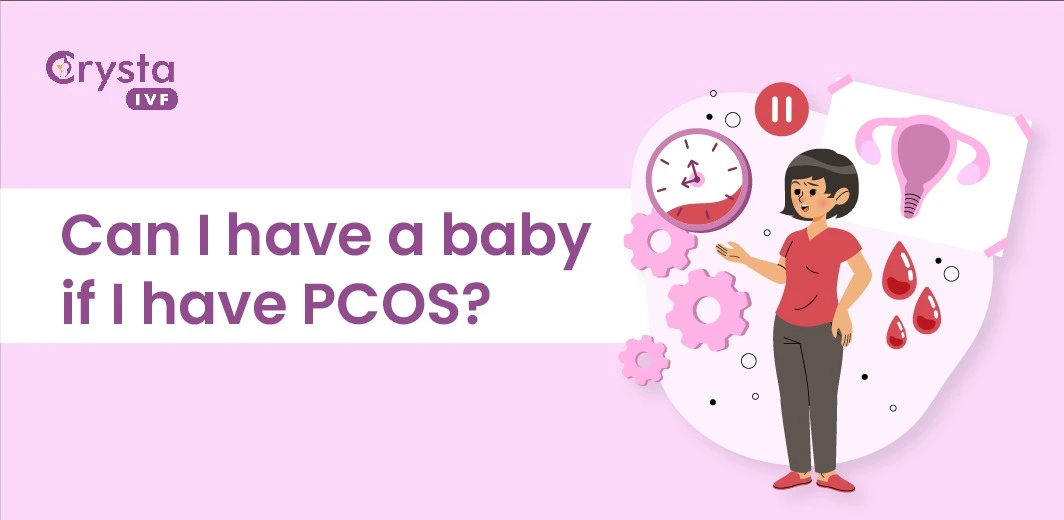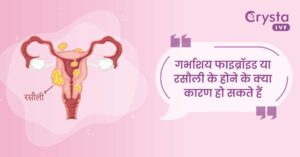Yes, certainly, you can have a baby even when you are suffering from PCOS.
PCOS or polycystic ovary syndrome is a hormonal health condition among females. Women having PCOS always have serious concerns about conceiving and are always in the dilemma of whether they will ever become pregnant or not. PCOS affects one in five women worldwide and women with high levels of a hormone type known as luteinizing hormone. It involves bringing about ovulation, and the decreased hormone levels called a follicle-stimulating hormone.
As per the Centers for Disease Control or CDC study, around 12 per cent of women around the globe find it difficult to achieve pregnancy due to untreated PCOS. This number is believed to be higher because more than 50% of women don’t have any idea that they are suffering from PCOS health conditions or aren’t diagnosed properly. If you have PCOS, that doesn’t mean you cannot achieve pregnancy. It is you have to ensure getting in touch with the best Fertility Specialists. With the right medical treatment, you can keep the problem of PCOS at bay and enhance the probability of a healthy pregnancy.
PCOS symptoms
If you aren’t aware of whether you are suffering from PCOS, then look for these signs:
- If your periods are irregular every month, it is a sign of PCOS.
- Your body parts are very hairy such as the face, arms, legs, etc.
- You have to struggle a lot while losing weight and gaining weight very easily.
- Your skin is very oily and prone to acne.
- You have been trying to get pregnant for years but aren’t conceiving.
What causes PCOS?
The real and precise cause of PCOS is not known, but according to professionals, there are various factors such as genetics, and others are:
- High levels of androgens are one main cause of PCOS. The androgens are known as the male hormones. However, every woman produces a small number of androgens. Androgens have the efficiency of controlling the traits of men like male-pattern baldness. So, when the level of androgens is high, then it causes the issue of PCOS. High levels don’t let the ovaries release an egg during their period and cause additional hair growth and acne, the two main symptoms of PCOS.
- Another cause of PCOS is insulin high levels. It is a hormone that involves controlling the food you eat, which transforms into energy. Resistance of insulin is when the cells in the body stop responding to the insulin normally. As a consequence, the blood levels in insulin become out of control or are higher than usual. Half of the women with PCOS face the problem of insulin resistance. It is more problematic for women who are obese or have diabetes. With time, insulin resistance also causes the problem of diabetes.
How does PCOS affect pregnancy?
PCOS doesn’t necessarily mean that it is difficult to achieve pregnancy. But other factors need to be taken care of when the pregnancy is achieved. Women facing the problem of PCOS are at a higher risk of going through pregnancy-related problems. It is also identified that babies born to PCOS mothers are at a higher risk of spending time in intensive care of a neonatal unit right after birth, during, or before dying. There are various complications related to the pregnancy if the woman is suffering from PCOS. Here are some of them:
- Studies suggest that women with PCOS are three times more likely to experience the problem of miscarriages during the early phase of pregnancy. There is a substance that reduces the miscarriage probability in pregnant females with PCOS. Although, researchers haven’t made any affirmations it can diminish the miscarriage risk.
- Gestational diabetes is the kind of diabetes that only pregnant women experience. It is controllable and treatable. There is nothing to be worried about because it doesn’t impose any major problems on the mother or fetus. In most cases, the problem goes away after the birth of a baby. The only risk is that it causes a high risk of type 2 diabetes to the mother and the baby in the future.
- Preeclampsia is a health condition in which blood pressure increases when the woman is in the 20th week of pregnancy. It affects the mother’s different parts, such as the brain, liver, kidneys, and brain. If the problem is not treated on time, then it can transform into eclampsia. Eclampsia is related to the damaging of organs, death, and even seizures.
- Pregnancy-induced high blood pressure is a health condition that occurs because of increased blood pressure. Women usually experience this problem in the second half of their pregnancy as a result of PCOS. If left untreated, it leads to a health condition known as preeclampsia. This health problem can affect the baby’s delivery adversely.
- Preterm birth, also known as premature birth, is the result of a PCOS health condition. It is considered when the baby is delivered before the 37th week of pregnancy. Premature babies are at higher risk of facing health problems in life, which can be serious.
- C-section is another complication of PCOS, as research suggests that pregnant women with PCOS are more likely to go through this type of delivery. It can be a risk for both the mother and infant as the C-section is a surgical procedure.
PCOS treatment
If you are looking for PCOS treatment, you first need to know that there is no treatment for this health condition. You can only make lifestyle changes and include healthy habits recommended by your doctor. Your doctor will ask you to maintain a healthy weight, right eating habits, and exercise daily. And if you have been trying to conceive for years, you can get in touch with the best services of IVF in Mumbai. They can help you with conception through this treatment. However, usually, women with PCOS conceive naturally, and IVF is the last alternative. But you wouldn’t need it if you were following the instructions given by your doctor.
Does food also affect PCOS? Click here to know more: Nutrition and PCOS
Medicines
You can also consider taking the different medications, which will assist you with conception, as it is useful in stimulating the ovaries for releasing the eggs. It would help in identifying whether the medicine is right for you or not. The doctor will not advise you of such medications for more than six months, enhancing ovarian cancer risks. If these drugs don’t work, then the doctor will recommend fertility-boosting medications. It is a fertility medicine that will ensure stimulating the ovaries for producing and ripening the eggs. Surgery is also recommended, that is, laparoscopic ovarian drilling. It will ensure killing the tissue on the ovaries produces testosterone. And the last option is IVF, as in this treatment, the doctor will retrieve the eggs, fertilize them and transfer them into the uterus.
Final word
If you have PCOS and you think that pregnancy cannot be achieved, then you are mistaken. You surely can get pregnant, but you have to make certain changes such as balancing the blood sugar levels, maintaining a healthy weight, healthy eating habits, etc. You will also have to ensure that you follow the instructions given by your doctor. There are cases when fertility medications don’t help in PCOS, then IVF treatment is required. Hence, it becomes important to get in touch with the finest fertility clinic in lucknow, like Crysta IVF.
Crysta IVF has been in the industry for years and has filled the lives of childless couples with happiness and joy by fulfilling their dream of achieving pregnancy. With the team of fertility specialists, we have gained a high success rate up till now. So, if you want to hold your little munchkin in your arms, then make sure to reach us. Our professionals will help in the best way.




